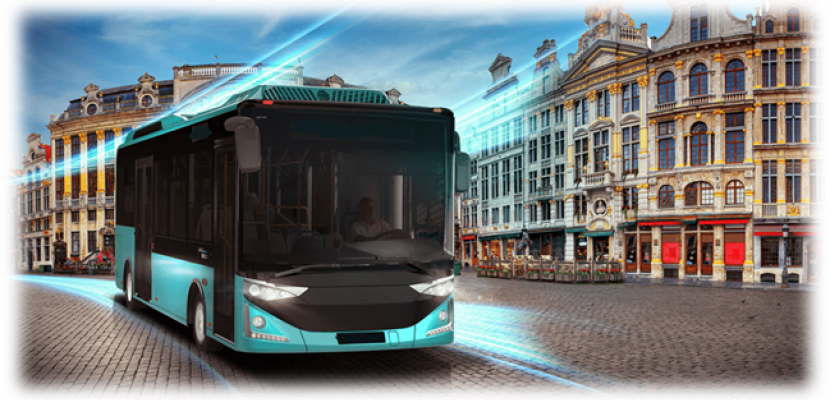Image

Urban Mobility
Published on 16 April 2021

Bulgaria
Yugozapaden
This is the good practice's implementation level. It can be national, regional or local.
About this good practice
In order to develop the technical specifications of the tender, the concept for development of the urban transport system in Sofia city and the needs of the operator itself were analyzed. One of the main factors taken into account was the quality of the service and the possibility of the new electric buses to be used on other lines in the network in case of accidents and failures.
Due to the lack of experience with such type of technologies in Bulgaria, a detailed study was carried out. Different models of electric buses were tested on different lines of the city public transport network for 6 months.
The analysis of the needed battery capacity was made, based on the assumption that the required minimum daily route is 320 km under normal operating conditions. The charging should be within 5 hours over night.
Technical specifications:
Two axle buses with length of 12 m;
Number of passengers -min. 70 (seated and standing without driver);
Battery capacity -min. 280 kWh;
Heating / cooling power -min. 30 kW;
Engine power -min. 320 kW;
Charging stations -5 pcs. with min power 120 kW (double) and 10 pcs. with min power 60 kW (single);
Award criteria:
Energy costs -15%
Warranty conditions -5%
Technical characteristics (torque, power, mileage) -25%
Total value (excluding leasing cost) -45%
Lease cost -10%
Due to the lack of experience with such type of technologies in Bulgaria, a detailed study was carried out. Different models of electric buses were tested on different lines of the city public transport network for 6 months.
The analysis of the needed battery capacity was made, based on the assumption that the required minimum daily route is 320 km under normal operating conditions. The charging should be within 5 hours over night.
Technical specifications:
Two axle buses with length of 12 m;
Number of passengers -min. 70 (seated and standing without driver);
Battery capacity -min. 280 kWh;
Heating / cooling power -min. 30 kW;
Engine power -min. 320 kW;
Charging stations -5 pcs. with min power 120 kW (double) and 10 pcs. with min power 60 kW (single);
Award criteria:
Energy costs -15%
Warranty conditions -5%
Technical characteristics (torque, power, mileage) -25%
Total value (excluding leasing cost) -45%
Lease cost -10%
Expert opinion
Green public procurement (GPP) is a great enabler for all the transformations that are necessary to shift towards a climate neutral economy, including in the field of urban mobility. This acknowledgement pervades the entire European Green Deal and is upheld by the new Sustainable and Smart Mobility Strategy. The good practice at hand as the merit of clearly showing that the purchase of electric buses is incomparably preferable to that of diesel-fueled ones – even of those complying with the most stringent emission limits – when it comes to abating both CO2 and NOx emissions. Besides having climate-altering effects like carbon dioxide emissions, the latter are also extremely dangerous for human health and the environment. Local and regional policymakers have the duty to act against this source of pollution by adopting measures to keep its concentrations within the limits laid down by the Ambient Air Quality Directive. Substituting fleets of urban buses with electric models – new or retrofitted to zero-emission standard – through GPP is a great way for local and regional authorities to demonstrate a real commitment to ensuring clean air for all and embracing climate friendly solutions. This good practice may inspire others and deserves to be replicated also in light of the sub-targets on the purchase of e-buses introduced in the Clean Vehicle Directive in 2019.
Resources needed
Total leasing cost: 11 350 224 EUR (excl. VAT), covering:
• Cost of the equipment: 8 527 860 EUR
• Lease fee: 2 822 384 EUR
• Cost of the equipment: 8 527 860 EUR
• Lease fee: 2 822 384 EUR
Evidence of success
The new electric buses lead to an estimated reduction of CO2 emissions by 700 t/yr compared to the existing diesel buses. Compared to EURO 6 diesel buses, the new electric buses generate 330 tCO2/yr less. Other benefits from the public procurement are the avoidance of harmful NOx and dust, as the new vehicles has zero tailpipe emissions.
Additionally, the calculated fuel savings equate to financial savings of about 576 000 EUR per year (depending on the change of fuel and electricity prices).
Additionally, the calculated fuel savings equate to financial savings of about 576 000 EUR per year (depending on the change of fuel and electricity prices).
Potential for learning or transfer
The overall concept for the development of public transport in each specific region must be taken into account. The type of bus technology can be determined by the suppliers based on a detailed needs analysis. Also, continuous testing of different buses in normal conditions (if possible) makes the development of the technical specification in the tender documentation easier. The implementation of these steps allows good practice to be transferred to each region / country.
Good practice owner
You can contact the good practice owner below for more detailed information.
Organisation
Stolichen Avtotrasnsport EAD/ Sofia Municipality

Bulgaria
Yugozapaden
Contact
Executive Director